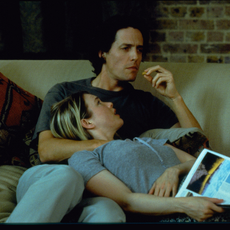Writing Young Adult Fiction – 4 Ways To Make Your Manuscript Stand Out
As Acting Features Director Corinne Redfern continues her quest to write a novel with the help of Windows 10, she finds out how to stand out from the crowd…

As Acting Features Director Corinne Redfern continues her quest to write a novel with the help of Windows 10, she finds out how to stand out from the crowd…
I’m four weeks into writing my first book. And while I’ve mastered writing on the Tube and even tentatively (oh-so tentatively) contacted a few literary agents, I’m still nervous that my manuscript will be overlooked in favour of something sadder / happier / starring Harry Potter’s long lost grandson. And it all comes down to the fact that I’m trying to break into Young Adult fiction. Anybody with a GCSE in English and decent command of apostrophes will tell you that YA fiction is a particularly tough area to break into for first-time authors. Sure, publishers are constantly on the look out for the next Twilight / Hunger Games / Fault In Our Stars, but short of writing a trilogy about vampire-slaying-wizards-with-terminal-illnesses, it’s less about following suit – and more about standing out. Which is why I’ve been researching the kind of things YA publishers are on the look out for… KNOW YOUR READERS Your teenage years may have blurred into one singular nightmare that sees you wandering about your secondary school canteen covered in hair, mascara and spit balls, but believe it or not, 13 year olds are actually a hell of a lot different to those at the other end of the adolescent spectrum. That doesn’t mean you can’t appeal to both (just look at JK Rowling), but it does mean you need to have a specific age group in mind who you want to appeal to – otherwise your manuscript could come across as a bit vague. Thankfully, that’s not as hard as it sounds. Look at blog posts and social media accounts run by teenagers, and familiarise yourself with their lifestyles while you write. If you’re running Windows 10 try‘snapping’ your research window next to your Word document. You can save huge chunks of time, and flit back and forth between the two – deciding who your target audience is as you go. Oh, and here’s a hint: don’t try and sound cool or modern. Just write honestly and from the heart. SPEAKING OF WHICH, STOP TRYING TO SOUND INTELLIGENT Imagine you’re 15 years old, your English Teacher has thrown a load of Shakespeare coursework at you, and you’re in the midst of constructing a careful text message to the boy in the year above who you’d really like to hold hands with before the week is out. In other words, any reading you’re going to do in your spare time needs to be straightforward, because otherwise there’s a very real risk that your head will explode and your brains will go all over your bookshelf. So that means that you need to write in plain English. Yep, swap out all of those syllables, and write your story as if you were writing to a friend. It doesn’t mean dumbing your writing down (if anything, it’s much more challenging to come up with a clever comparison than it is to open your thesaurus on Word and pick out the longest synonym that you can find) – but it will make you sound genuine. And that’s considerably more important. GET YOUR VOICE RIGHT The best Young Adult novels always come with a strong, identifiable voice – and it’s generally in the first person. In publishing terms, this is called using a ‘Reader Proxy’, because the character is standing in for the reader. I.E. The reader is experiencing everything that the character experiences, through their eyes. That means you need to work out how your protagonist thinks and speaks, before you start writing. One technique that literary agents tend to recommend to help with this is turning to Tumblr and looking at the language used by its predominantly-teenage community. Switch to reading mode in Microsoft Edge to get rid of all the adverts and pop ups and animated cat gifs, then immerse yourself in the comments, annotating them on screen as you go. It’s not just a matter of picking up the right slang – if you want your novel to be timeless, you might want to steer clear of slang altogether – but it is about imitating their relationships, their thoughts and their fears. What shocks them? What scares them? What makes them want to cry? END IT ON A HAPPY NOTE Remember how much you really, really cared about Alexander-from-The-Bronze-Horseman, or Ron-from-Harry-Potter, or thingy-from-Twilight? The relationships that you form with literary characters are super intense when you’re a teenager. They’re a form of escapism, and hope, and a way for you to escape your incredibly boring friends, your incredibly boring parents, and your incredibly boring school. So if you end your book on a note of doom and gloom, you’re basically crushing your readers’ adolescent dreams. Which is just a bit mean, really. That doesn’t mean you can’t write about sad subjects, or casually kill off a character or two. But you do need to end the whole thing with some positivity. Just a little bit. Just a tad. Follow Corinne next week as she attempts to overcome writer’s block. To find out more about how to upgrade to Windows 10 visit windows.com/10WATCH OUR 'A DAY IN THE LIFE OF A NOVELIST' VIDEO, IN PARTNERSHIP WITH WINDOWS 10:
/>
Marie Claire Newsletter
Celebrity news, beauty, fashion advice, and fascinating features, delivered straight to your inbox!
The leading destination for fashion, beauty, shopping and finger-on-the-pulse views on the latest issues. Marie Claire's travel content helps you delight in discovering new destinations around the globe, offering a unique – and sometimes unchartered – travel experience. From new hotel openings to the destinations tipped to take over our travel calendars, this iconic name has it covered.


